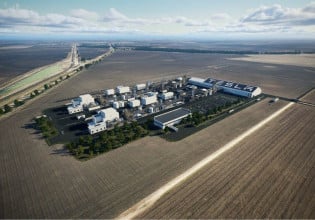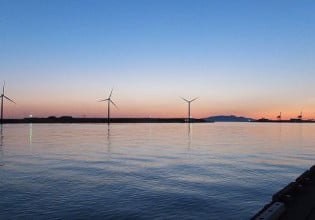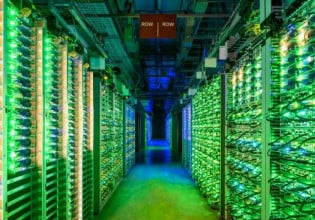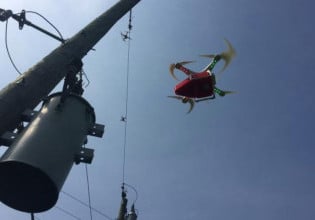Virtual Power Plant Project for Smart Building Upgrades Raises $110M
A virtual power plant project targeting residential buildings raised $110 million to facilitate smart building upgrades in New York and New Jersey.
Logical Buildings, a New Jersey-based company offering smart building software for multifamily and commercial real estate managers, recently raised $110 million to establish a virtual power plant (VPP) project for residential buildings in the New York City area and neighboring New Jersey.

Logical Buildings’ virtual power plant will help multifamily buildings deploy smart meters and thermostats to reduce emissions. Image used courtesy of Logical Buildings
The funding, extended by New York City-based investment firm Keyframe Capital, will be repaid via energy savings and grid revenue. The details of that arrangement and relevant revenue projections haven’t been disclosed publicly. However, according to reporting from Canary Media, the initial $25 million tranche will fund upgrades at several multifamily buildings, totaling 100 megawatts (MW) of peak load-reduction capacity.
The new VPP program will facilitate financing for smart meter and thermostat upgrades (with no upfront capital required) that link to Logical Buildings’ pair of demand-response software platforms for residents and operators. The company’s announcement in late March said the VPP projects would provide “thousands” of operators with financial and reputational incentives to reduce their greenhouse gas emissions (GHG) while unlocking energy savings and new revenue streams for grid services.
Virtual Power Plant Technology
Logical Buildings was founded in 2012 and has raised over $13.5 million in investments, according to Crunchbase data. Keyframe Capital is no stranger to the company, having led its $10 million Series D round in 2021. Besides Keyframe, it’s unclear who its other investors are. But its shareholders develop/own more than $10 billion of multifamily and mixed-use properties.
Logical Buildings markets two software platforms that come into play with its newly funded VPP program. The first is GridRewards, a free app that notifies consumers when utility demand is high so they can earn cash by adjusting their thermostats or delaying charging their EVs.
The company recently announced that more than 9,000 people—customers of Con Edison and Orange & Rockland Utilities in New York City and three surrounding counties—used the app last year to earn an average of $80 per user in direct cash payments. A record number of residents signed on to the program in the peak season last summer, allowing Logical Buildings to send hundreds of thousands of dollars in rewards to users, who also accounted for the bulk of Con Edison’s residential demand-response participants.
Meanwhile, Logical Buildings’ SmartKit AI platform allows operators to monitor their energy usage and emissions to improve efficiency and avoid costly carbon penalties.

Building operators and owners can track their real-time electricity usage (as shown in the image on the left) and carbon emissions (on the right) with the SmartKit AI app. Image used courtesy of Logical Buildings
Logical Buildings’ upcoming VPP projects allow residents to use GridRewards to earn revenue from energy savings while building operators benefit from its services to identify high return on investment projects and maximize the potential value of each building’s efforts to reduce consumption.
Con Edison recently installed new smart meters in local multifamily housing units as part of a $2 billion overhaul to its advanced metering infrastructure. Using Logical Buildings’ VPP, each apartment’s thermostat will record temperature changes every 15 minutes and return grid-service revenue across utility and wholesale programs.
A few years ago, Logical Buildings worked with Rose Associates, a multifamily housing developer and operator in New York City, to use SmartKit AI and GridRewards across its portfolio of more than 20,000 units. Amid a heat wave in June 2021, New York City issued an emergency energy conservation alert asking residents to limit their electricity to prevent power outages. Rose Associates’ resident managers then used SmartKit AI to cut nearly 1 MW of electricity (equivalent to 1,000 homes) in one day. It also extended the GridRewards app to residents across several buildings Rose owns or manages.
Emissions Reduction Mandates
Beyond its function to incentivize emergency response measures, the value of Logical Buildings’ service has become more attractive as housing developers and operators face new mandates to reduce their carbon footprints.
New York City’s Local Law 97 requires most buildings over 25,000 square feet to slash their carbon emissions by 40% before 2030 and 80% by 2050. The law adds a cap on building emissions, which account for 71% of the city’s annual GHG footprint. Energy-saving rewards programs are one way to incentivize consumers to support these efforts while earning cash directly. The compliance period begins in 2024 and applies to nearly 50,000 properties in the city.

Cities like New York are being mandated to reduce emissions. Image used courtesy of Pixabay
Local Law 97 is part of New York City’s Climate Mobilization Act, passed in 2019, which also requires new buildings and roof replacement projects to install solar photovoltaic panels or a green roof. And starting next year, residents at multifamily buildings will have their energy and thermostat usage reported against carbon emissions caps.
New emissions-reduction policies are being introduced in cities and states across the country. Given these policy developments, the demand is high for VPP services that allow utilities and building owners to manage their assets virtually over the cloud. VPPs also offer demand flexibility, which is increasingly useful in the ongoing global transition to renewable energy. As EE Power has previously covered, several companies are working on VPP technology, including Tesla and PG&E, Hitachi Energy and AEW Energie, Swell Energy, and EIPGRID and Intertrust.






